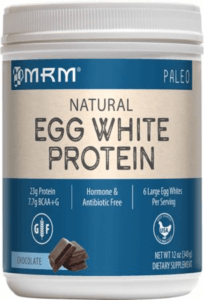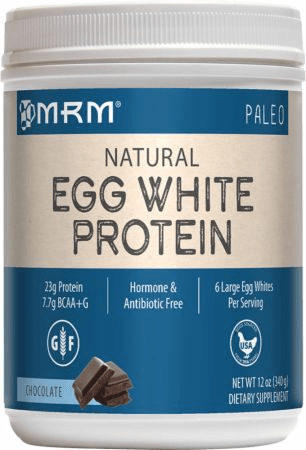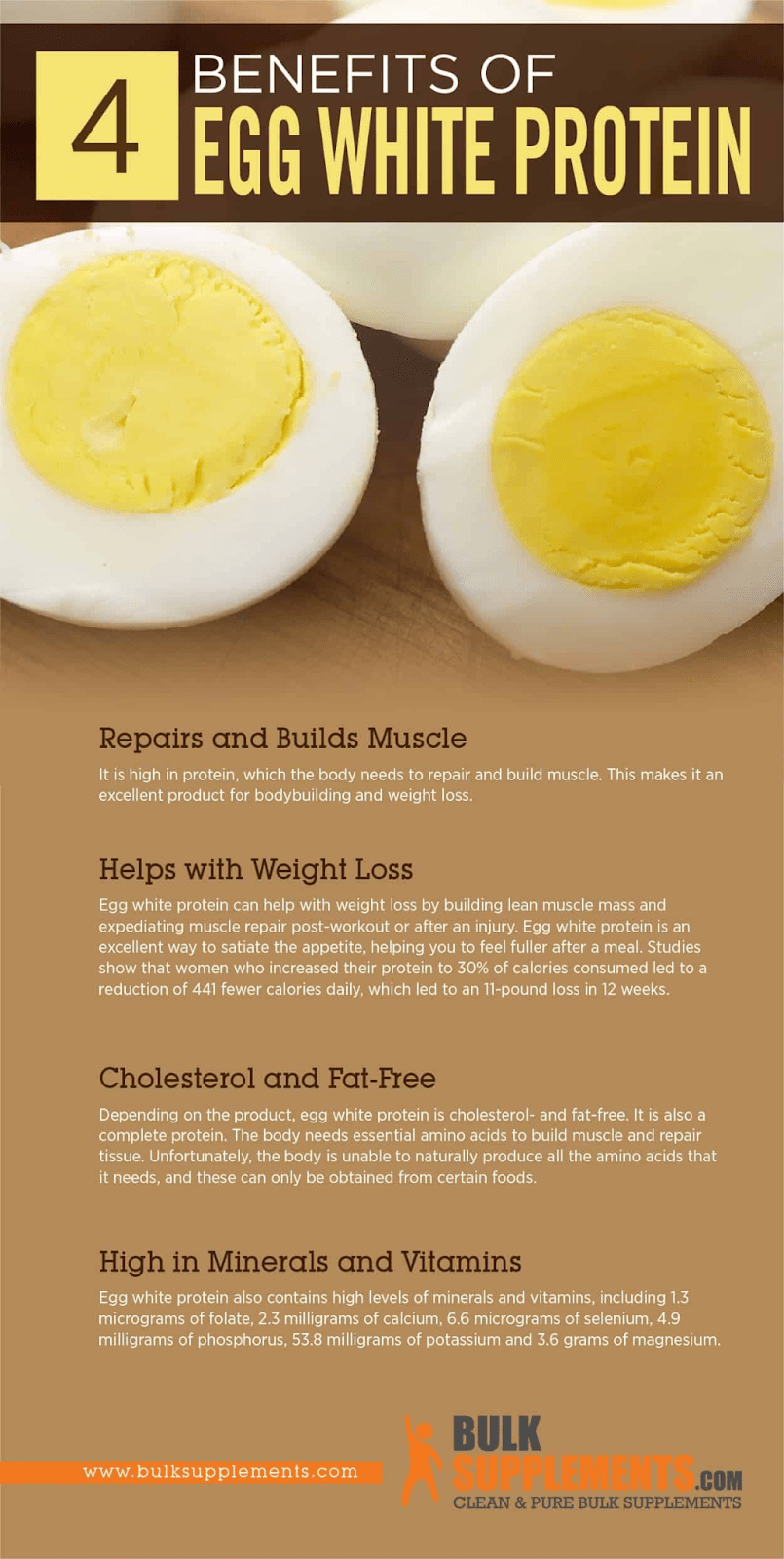
Egg white protein bars can be used as breakfast or post-workout protein. If you are trying to gain muscle and weight then they make an excellent choice. Their high protein content helps build muscle and is also a great source of energy.
The energy supplied by egg white protein bars can help you fight fatigue and stay awake. They are also commonly used in sports to boost stamina and performance. Many athletes use egg white protein bars after a workout to recover from their workout and sometimes are also used in energy drinks to give an extra boost when their energy stores run low. Egg white protein is used by people who are trying to lose weight. The protein in egg white helps control blood sugar levels, which is why it can help people who are dieting as well.
Protein bars are popular because of their versatility. They can be eaten on their own, mixed with other ingredients, or combined with fruit. When purchasing egg white protein powder, make sure you buy a brand that contains healthy ingredients. There are many great brands available that do not contain unhealthy fillers like soy, whey, egg white meal, and egg white.
- Types of Protein
- How Much Protein Is in Egg White Protein?
Types of Protein
Protein bars are a popular way to add protein to a diet, but so much protein can be found in other types of food that it is hard to get enough of what is really needed. It is recommended that you get about one gram of protein per pound of body weight or about six grams per 10 pounds of body weight.1 While protein plays an important role in building and repairing the muscles, it is also needed in the proper amounts to maintain the diet and stay healthy.2
There are four different types of protein, whey, soy casein, and egg white protein.3 The types of protein found in various foods can be separated into two categories: peptides and non-peptides.4 There are also several types of peptides, which are simply individual amino acids arranged in a different arrangement.
While protein supplements may be used to replace food, they should not replace a healthy diet and regular exercise. A healthy diet should include plenty of lean meats, poultry, eggs, and fish and should be low in fat and sodium. In addition to eating healthy, protein bars can also provide a great deal of energy for athletes and those who need to stay hydrated while working out. Protein bars can provide the extra boost that athletes need to continue training without becoming exhausted.
Egg White Protein Vs Whey Protein
There are some huge differences between egg white protein and whey protein when it comes to their effect on the body. Let’s start with the absorption rate of egg protein vs. whey protein first. Whey protein bars are quick to digest and release their amino acids immediately, while egg white protein takes a little longer and the amino acids still aren’t released as quickly.5 When you compare the differences in protein between these two options, it becomes clear that egg white protein wins the race. However, what if you’re not a fan of egg white protein?
For instance, did you know that whey protein bars are extremely high in globulin and do not provide as much overall protein per serving as egg white protein does? You will also find that whey protein bars tend to have fewer calories than egg white protein bars. What’s more, whey protein is quickly digested and absorbed by the body, providing it with the energy it needs to work effectively. Therefore, if you are a vegetarian or vegan, you may want to skip the protein bars altogether and focus your efforts instead on taking a multivitamin supplement with a wide range of minerals and vitamins to help you make up for any nutrients that you may be missing.

Egg white protein is not only superior to whey protein in terms of its effect on the body, but it is also just plain better tasting. While egg white protein has that slightly bitter taste associated with it, whey protein has a much sweeter taste. It may even taste nutty, depending on which brand or type of egg you choose. If you’re looking to gain muscle and reduce fat, you’re likely to prefer one over the other. Just remember, they don’t actually taste the same, so experiment to see which one works for you.
How to Choose Between Egg White Protein Vs Soy Protein
In terms of nutrition, egg white protein and soy protein are not much different from any other type of protein. Animal products, such as meat, milk, and cheese are made up of large amounts of protein, and while some people argue about the cholesterol levels of eggs, it is a proven fact that the egg white protein is a complete protein and is the most complete protein in terms of nutrition. Egg protein has also been proven to reduce the risks of many types of cancer, including breast cancer, prostate cancer, colon cancer, and stomach cancer. Soy protein has been shown to lower the risks of heart disease, diabetes, Alzheimer’s disease, and stroke.6 So, what are the differences between egg white and soy protein?
Soy protein is a complete protein, which means it contains all of the essential amino acids. It is the protein group made up of the most diverse of amino acids, making it one of the most complete proteins available.
When comparing egg white protein to soy protein, you should also consider your overall diet. People with diabetes are told to avoid egg yolks because of the high levels of glycemia, but if you are insulin sensitive, it may actually be okay to include egg white protein in your diet. Soy protein comes from soybeans, which may be a good choice for people on vegetarian diets since the beans themselves are also a good source of protein. Egg whites are rich in protein but the health benefits of soy protein are still being explored and developed. Both egg white protein and soy protein can provide a wide range of benefits, so if you are trying to decide between them, keep in mind what your personal goals are and how you want to get the most benefit for your diet.
Egg White Protein Vs. Casein Protein
There is a big difference in protein, but not necessarily between egg white protein and casein protein. Protein can be broken down into several different forms including; animal-derived protein and plant-based protein. These categories all have their differences, and each of those differences affects what you need to eat to stay healthy. It’s important to recognize the differences between the types of protein so that you can choose the one that is going to provide you with the nutrition you need.
Casein protein is a great way to stay full and maintain your energy level because it keeps you from consuming large amounts of calories later on in the day.7 While this protein is great for maintaining your energy and helping you stick to a diet, egg white protein is much better for increasing muscle mass and building muscle. When your body is able to repair muscle quickly after you work out, you will find that you can gain weight much faster than if you were to maintain your calorie intake by eating egg white protein alone. This type of protein is also considered to be a high-quality protein because it contains healthy proteins such as lecithin, cysteine, branched-chain amino acids (BCAA’s), and other important nutrients that are important for the body.8
The next thing that needs to be looked at when comparing egg white protein is that each egg white protein has its own set of benefits and issues that need to be looked at. The egg white protein that is most commonly used is Casein. This type of protein tends to be very consistent throughout the body and provides support to tissues and organs. It is also very effective at regulating your blood pressure and has been shown to slow down the build-up of calcium deposits in arteries. Overall, egg white protein has its advantages and while you will see significant results when using it that may not be enough to justify the additional cost.

How Much Protein Is in Egg White Protein?
Protein is a building block for cells and tissues throughout your body, and the amount of protein you get from your diet plays a very large role in your overall health. The question that people often ask, “How much protein is in egg whites?” is not as easy to answer as you might think. Egg white is actually the clear, runny fluid found inside an egg. In chickens, it’s formed by the secretion of the anterior portion of secretions during the process of the egg being laid.
Egg whites are generally thicker and have a more jelly-like consistency when compared to egg yolk. Egg whites are also denser and because they contain twice the protein of yolks (that’s why they’re called egg white protein) this makes egg whites twice as nutritious as whole eggs. Egg white protein is an excellent source of protein and if you’re looking to boost your protein intake without increasing your fat intake, egg white protein may be the way to go.
If you’re looking to increase your protein intake without gaining a lot of fat, which can increase your cholesterol levels, egg white protein is an excellent option.9 Egg protein is low in fat, cholesterol, and carbs making it an excellent choice for any person looking to stay within a healthy diet while adding a little extra protein to their everyday diet. Egg whites are also a fantastic choice if you suffer from chronic illness or are undergoing treatment for diabetes, as protein-rich foods have been proven to lower blood sugar levels.

The Benefits of Egg White Protein
Egg protein is a great source of protein and can be used in a number of different ways. Many dieters find that egg white protein bars are a great way to get their daily requirement of protein without having to eat eggs.
The first benefit of an egg-white protein bar is that it has a high protein concentration. The bar can have up to 22% protein in one egg white protein bar, which means you can get a high level of protein without having to eat eggs at all. This makes egg white protein bars a great way to provide you with protein.10
Another benefit of the egg white protein bar is that you can get your daily calcium need without having to consume eggs or any other animal products for that matter. The calcium from an egg white protein bar is not derived from dairy or any other type of source, which makes it a unique protein bar. It is also high in fiber and will give you a feeling of fullness after you eat your protein bar. Some protein bars have a very bitter taste, and this may cause indigestion because of the protein content.
One of the most popular benefits of egg white protein bars is the amount of protein that you can get from each serving. An egg protein bar usually contains about two grams of protein per serving, which means you can get a good amount of protein from each serving of egg white protein bars. Depending on your personal preference, you can use the egg as the primary source of protein in your spread or you can use other sources of protein as a side dish. Either way, you will be getting plenty of protein for your body.
If you have any health issues such as heart disease, diabetes, or hypertension, then the benefits of egg white protein bars are especially important. This type of protein bar is a great source of healthy carbohydrates, which can help to control your blood sugar. By including this protein bar in your diet, you can also improve the function of your blood vessels, which can lower your cholesterol levels. In addition, protein helps to build muscle, so you can get the results you want by including this protein in your diet.

For those that do not want to make a protein bar as part of their daily diet, there are many egg white protein supplements that can be purchased from your local drug store. These supplements will provide you with all of the protein that you need. There are no harmful ingredients in these supplements, so they are great to use as a weight-loss supplement as well as a health supplement. Using egg white protein regularly can help you stay healthy and lose weight.
Image Credits
Health Beast / September 16, 2018
The Protein Report / 2019
Fit Industries
Bulk Supplements / January 31, 2021
1 “How much protein do you need every day? – Harvard Health Blog ….” 25 Jun. 2019, https://www.health.harvard.edu/blog/how-much-protein-do-you-need-every-day-201506188096 Accessed 6 Apr. 2021.
2 “How to Calculate How Much Protein You Need – Verywell Fit.” https://www.verywellfit.com/how-to-calculate-how-much-protein-you-need-3955709 Accessed 6 Apr. 2021.
3 “What are the different types of protein, and what’s the difference?.” 27 Aug. 2019, https://mend.me/all-about-protein/Accessed 6 Apr. 2021.
4 “Explainer: Peptides vs proteins – what’s the difference? – Institute for ….” 13 Nov. 2017, https://imb.uq.edu.au/article/2017/11/explainer-peptides-vs-proteins-whats-difference Accessed 6 Apr. 2021.
5 “Whey Protein 101: The Ultimate Beginner’s Guide – Healthline.” 29 Jun. 2018, https://www.healthline.com/nutrition/whey-protein-101 Accessed 6 Apr. 2021
6 “Soy Protein: Benefits, Side Effects, Dosage, and Interactions.” https://www.verywellfit.com/is-soy-protein-harmful-3498778 Accessed 6 Apr. 2021.
7 “Why Casein Is One of The Best Proteins You Can Take – Healthline.” 16 Sep. 2016, https://www.healthline.com/nutrition/casein-protein-is-highly-underrated Accessed 6 Apr. 2021.
8 “BCAA Benefits: A Review of Branched-Chain Amino Acids – Healthline.” 25 Nov. 2016, https://www.healthline.com/nutrition/bcaa Accessed 6 Apr. 2021.
9 “Egg Whites: Health Benefits & Nutrition Facts | Live Science.” 19 May. 2015, https://www.livescience.com/50879-egg-white-nutrition-facts.html Accessed 6 Apr. 2021.
10 “The Benefits of Egg White Protein | NuGo Nutrition.” 5 Jun. 2018, https://www.nugonutrition.com/blogs/news/benefits-of-egg-white-protein Accessed 6 Apr. 2021.
